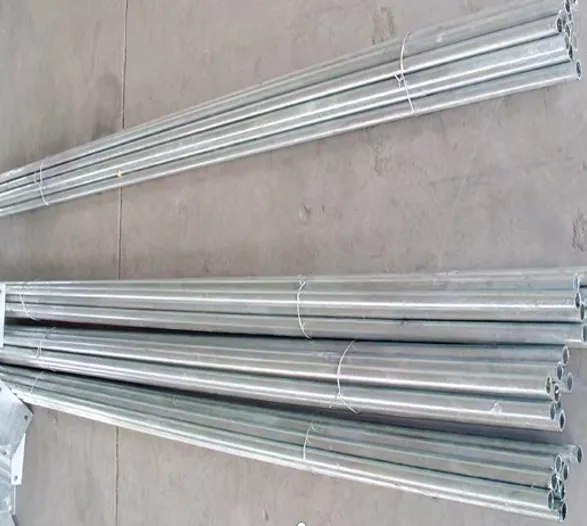loading...
- No. 9, Xingyuan South Street, Dongwaihuan Road, Zaoqiang County, Hengshui, Hebei, China
- admin@zjcomposites.com
- +86 15097380338
- Welcome to visit our website!
Innovative Applications of Fiber-Reinforced Plastic in Manufacturing Tanks and Storage Vessels for Industry
Fibre Reinforced Plastic Tanks and Vessels A Comprehensive Overview
In recent years, the demand for efficient and durable storage solutions has led to the increased use of Fibre Reinforced Plastic (FRP) tanks and vessels across a variety of industries. These innovative products combine the structural advantages of composite materials with the flexibility and resilience needed for modern applications. This article explores the properties, benefits, and applications of FRP tanks and vessels, highlighting why they are becoming the preferred choice for many manufacturers and service providers.
Understanding Fibre Reinforced Plastic
Fibre Reinforced Plastic is a composite material made by combining a polymer matrix with fibres, commonly glass, carbon, or aramid. The reinforcement imparted by these fibres significantly enhances the mechanical properties of the plastic, making FRP both lightweight and incredibly strong. This unique combination allows FRP to withstand high pressure and stress, making it suitable for various demanding environments.
Benefits of FRP Tanks and Vessels
1. Corrosion Resistance One of the most significant advantages of FRP tanks is their resistance to corrosion. Unlike traditional materials such as steel, FRP does not rust or corrode when exposed to harsh chemicals, making it ideal for storing aggressive fluids. This property extends the lifespan of tanks and reduces maintenance costs significantly.
2. Lightweight and High Strength FRP tanks are considerably lighter than their conventional counterparts, allowing for easier installation and transportation. Despite their low weight, they offer exceptional strength, making them suitable for applications where both durability and reduced weight are critical.
3. Design Flexibility FRP can be molded into various shapes and sizes, allowing for customized solutions to meet specific storage needs. This design versatility enables manufacturers to create tanks that fit tight spaces or conform to unusual layouts without compromising structural integrity.
4. Thermal Insulation FRP materials provide excellent thermal insulation, which is crucial in processes requiring temperature control. This property ensures that stored contents maintain their desired temperature, improving process efficiency and quality.
fibre reinforced plastic tanks and vessels

Applications of FRP Tanks and Vessels
FRP tanks and vessels find applications across a wide range of industries
- Chemical Storage Their corrosion resistance makes them ideal for storing a variety of chemicals, including acids, bases, and solvents, used in the chemical processing industry.
- Water Treatment FRP vessels are commonly used in water treatment plants for storing water, chemicals, and treatment agents due to their durability and resistance to environmental factors.
- Food and Beverage Industry The non-reactive nature of FRP makes these tanks suitable for food storage applications, ensuring that the quality and safety of food products remain uncompromised.
- Oil and Gas Sector In the oil and gas industry, FRP tanks are utilized for storing corrosive substances and waste products, offering a reliable solution in demanding conditions.
- Agriculture Farmers use FRP tanks for liquid fertilizers and agrochemicals due to their resistance to chemical reactions and external environmental factors.
Conclusion
Fibre Reinforced Plastic tanks and vessels represent a significant advancement in storage technology. With their exceptional properties, including corrosion resistance, lightweight, strength, thermal insulation, and design flexibility, they are revolutionizing how industries approach storage and containment solutions. As industries continue to seek ways to improve efficiency and reduce costs, the use of FRP tanks and vessels is likely to grow, highlighting their essential role in modern manufacturing and processing environments.
-
The Rise of FRP Profiles: Strong, Lightweight, and Built to LastNewsJul.14,2025
-
SMC Panel Tanks: A Modern Water Storage Solution for All EnvironmentsNewsJul.14,2025
-
GRP Grating: A Modern Solution for Safe and Durable Access SystemsNewsJul.14,2025
-
Galvanized Steel Water Tanks: Durable, Reliable, and Ready for UseNewsJul.14,2025
-
FRP Mini Mesh Grating: The Safer, Smarter Flooring SolutionNewsJul.14,2025
-
Exploring FRP Vessels: Durable Solutions for Modern Fluid HandlingNewsJul.14,2025
-
GRP Structures: The Future of Lightweight, High-Performance EngineeringNewsJun.20,2025
